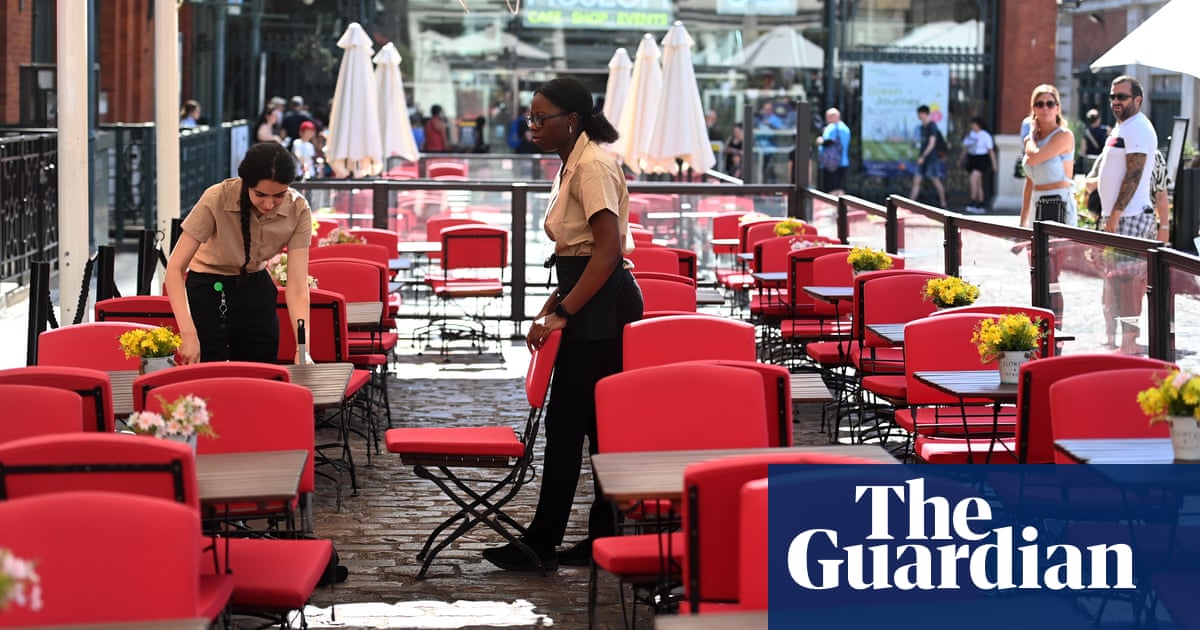
Pubs and restaurants face a “perfect storm” of challenges this year as cash-strapped consumers slash spending and the government reduces its energy bills support – forcing many to cut their opening hours.
The industry faced a plethora of challenges in 2022, including soaring energy bills, staffing shortages, rampant food inflation and fragile consumer confidence.
Trade at bars, pubs and restaurants was further affected by a series of rail strikes which may have cost the industry at least £1.5bn in December alone.
Kate Nicholls, the chief executive of UKHospitality, said businesses were concerned going into the first few months of the year, already a quieter time for pubs and restaurants, with many opting to cut capacity by 20%.
“The fear is that people will tighten their belts quite considerably. That’s when the cost of living will bite. And you’ll see customers not going out as frequently.”
Nicholls said an industry body survey in November indicated one in four people would not go out as frequently or spend as much because of the increased cost of living.
“There’s no doubt quarter one is going to be tough.
“What we’re hearing is that around half of our members are restricting their opening hours, their capacity, the days of the weeks that they are opening, driven primarily by staff shortages being exacerbated by energy and the need to make sure that they can be as profitable as they possibly can.
“We’re hearing lots of people talking about curbing their capacity by about 20%, just simply to be able to match supply and demand.
“And we have seen in rural and tourist locations, quite a few businesses going dark over the winter months as they used to do in old-fashioned tourism times, seasonality, again, just to try to conserve cash and then reopen when the trade comes back.”
She added that planning for the future was “difficult” and it was “obviously disappointing” that an announcement of further support for businesses’ energy bills was not made before Christmas.
She said: “Energy costs have gone from the fourth-largest cost, round about 4% or 5% of turnover, to being the second-largest and 16%. That’s more than rent and rates combined. So before you open the doors, you’ve got to be able to pay your energy bill.”
She said government support “could be the difference between surviving and not for so many businesses. So we need that to come as early as practically possible”.
It comes amid reports that the government intends to halve financial support on energy bills when the current business aid scheme ends in March. Nicholls warned that would coincide with the financial year-end and the March rent quarter – heaping more pain on businesses.
Chancellor Jeremy Hunt will extend the support programme by 12 months, but will cut the support due to concerns about taxpayers being exposed to volatile gas and oil prices, the Times reported.
Despite the challenging economic outlook across the country, Nicholls does think there is some cause for optimism in 2023.
“We’ve got some cautious green shoots of optimism at the moment, you know, the government appears to have stabilised the ship, it doesn’t look as though interest rates are going to peak at as high a level, it’s possible that inflation and interest rates have already peaked and we’re sort of seeing them coming down.
“I think if we get to the new year and the signs start to be positive around the economy, we know that there is a lot of demand.”












